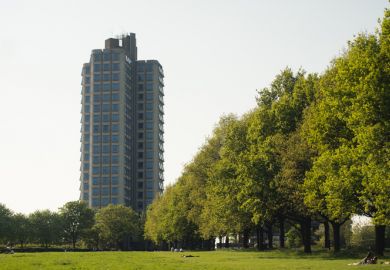Many commentators and some politicians argue that Britain should become more like America. They say that the US's record on employment and job creation is far superior to that of the European Union and that what we need on this side of the Atlantic is a more flexible labour market and fewer employment protection measures.
I recall that this argument received a prominent airing on BBC television news in the coverage of the recent European Council's Barcelona Summit, after some remarks that I had made focused attention on the threat to employment protection posed by the alliance between our prime minister and his Italian equivalent, Silvio Berlusconi. The television commentator posed the choice as between the "cosy" European approach to employment and job creation and the more fiercely competitive American model. The image that came to mind was between a mean, lean, fit US and the European couch potato - Sex in the City versus The Royle Family .
This book shows just how wrong that image is. The fact that frequently goes unstated in comparisons between Europe and the US is that the economy of the US is not driven by small entrepreneurs creating jobs by working from garages and potting sheds. The engine is built on the employing power of the big multinational corporations. And it is by looking at the employment practices of these giants that we can get some impression of the reality behind the image of the superfit athletic American economy.
Business journalist Jill Andresky Fraser spent five years following the lives of the people who make corporate America tick: the executives, consultants, accountants, managers and temps. The story she tells is one of rising pressures and deteriorating rewards. In the main, her evidence comes in the words of the victims, often related in snatched conversations during all-too-short breaks from work. The picture is relentless, and as one would expect from a journalist it is laced with personal and sometimes heart-rending stories of people robbed of their leisure and family life in order to feed the need to squeeze more and more output from the corporate pot.
Technology is identified as one of the main instruments of torture, alongside excessive hours, and it is ironic than many of the victims of this work-work imbalance are employed by the companies that manufacture the cell phones and computers that ensure no escape from work whether at home, at the office or commuting between the two. A tunnel outside New York's Grand Central Station is said to be one of the few places where one regular commuter knows she cannot be contacted by phone by her boss, work colleagues or customers. Fraser quotes a fellow commentator on how companies have married 20th-century technology and 19th-century scientific management to turn the office of the future into the factory of the past.
The technology not only allows constant access to employees but enables conversations and keystrokes to be monitored to ensure that each employee operates to maximum efficiency. In call centres, conversations are constructed with all the precision that Henry Ford brought to the car production-line - pick one phrase from this rack, add another from a second and soon you have what passes for a conversation - or a sale.
As Fraser points out, in the 1970s and even the 1980s employees of the big corporations were expected to work to excess in their early days in the expectation that they would be rewarded with job security in their later years and a guaranteed pension on retirement. Yet, as "the bar was raised" year on year, these benefits were costed and removed. The reward for excessive work in your early years is now to be made redundant on exhaustion, in your 50s or even 40s. The benefits blanket and pensions umbrella have been removed as the pressure grows for longer hours, shorter lunch breaks and greater flexibility.
This is a grim picture. And some of it is familiar. Travel by train around Britain on any weekday and you can see carriages that are little more than offices on wheels. The idea that a key figure or even the average executive "cannot be contacted" even in an emergency is no longer believable. You do not need to be that important before you are tied to the office by the ball and chain of the mobile phone and remote access to your emails. So where will it end? And are we bound to follow the American fashion in work as slavishly as we have followed it in fast food, popular music and tightly constructed television series?
Fraser concludes on an optimistic note. She notes that some firms that have taken the foot off the accelerator and introduced the concept of "work-life balance" have performed better than those that pile on the pressures. She also notes a rise in the propensity of the over-stretched workers to look to unions for support - and if not the traditional unions, then self-help groups through email and internet chat groups (usually conducted away from the spies-in-the-screen at the office).
And in Europe we can go back to that choice and re-pose the options not as between the athlete and the couch potato but between the white-collar sweatshop and a flexibility that bends in the direction of the employee as well as the employer. I just hope that those commentators and the politicians who urge us to look Stateside will find time in their busy schedules to read this book. Perhaps the prime minister could find a few moments on his way to the next European Summit.
John Monks is general secretary, Trades Union Congress.
White Collar Sweatshop: The Deterioration of Work and its Rewards in Corporate America
Author - Jill Andresky Fraser
ISBN - 0 393 04829 2
Publisher - Norton
Price - £18.95
Pages - 8
Register to continue
Why register?
- Registration is free and only takes a moment
- Once registered, you can read 3 articles a month
- Sign up for our newsletter
Subscribe
Or subscribe for unlimited access to:
- Unlimited access to news, views, insights & reviews
- Digital editions
- Digital access to THE’s university and college rankings analysis
Already registered or a current subscriber? Login



